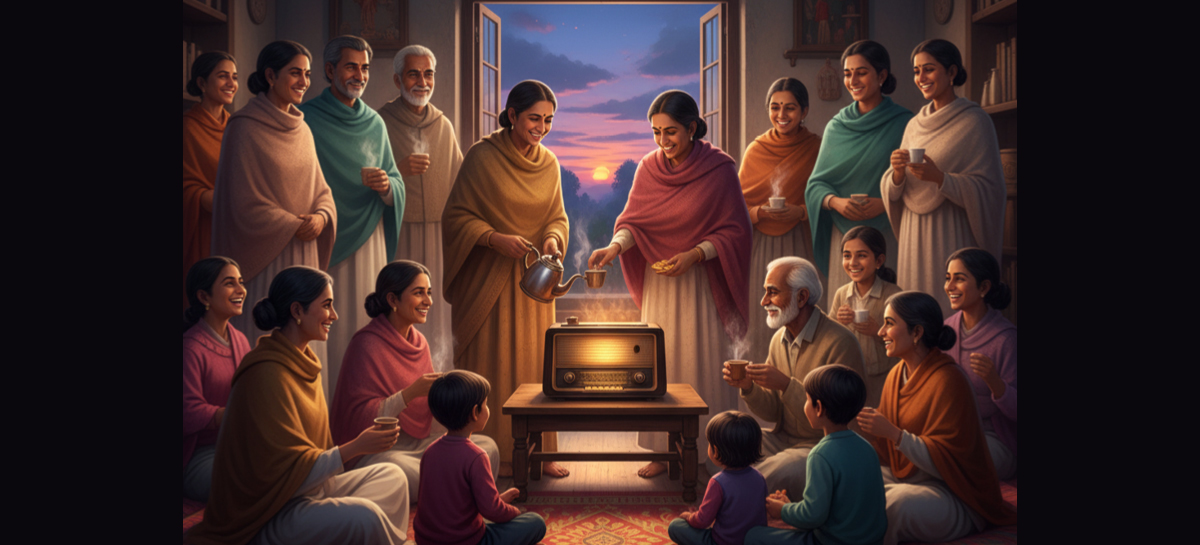Our member Mr A. K. Sarkar takes us back to his childhood Mahalaya mornings, when entire neighbourhoods gathered around a single radio to hear Birendra Krishna Bhadra’s immortal voice.
In my youth, Mahalaya mornings were cool and crisp, with a hint of winter in the air. Wrapped in shawls, we would sit together to listen to the early morning programme. Today, with the heat, humidity, and lingering rains, I am convinced these are the effects of global warming and climate change.
Back in my village, there was only one house with a radio—a valve radio, not a transistor set—half a kilometre away. On Mahalaya, the entire neighbourhood would gather there, well before dawn. All of us in shawls and light woollens, we turned up to listen to Birendra Krishna Bhadra’s live recitation of “Mahishasura Mardini” from Akashbani. Such was the social fabric of village life then—no invitations were sent, no reminders were needed. We simply knew to walk to that house, and everyone living nearby would be in attendance.
Mats (shataranchi and maadur) would be spread out on the floor, and we would take our places eagerly. Then, the impassioned voice of Birendra Krishna Bhadra would fill the room: “Ya devi sarvabuteshu…” Once the programme ended, the host and hostess served the grownups hot tea and biscuits.
Today things are different. Loudspeakers blare “Mahishasura Mardini” from street corners in broad daylight. Often the chanting is drowned out by the roar of traffic. To me, this feels like an abomination. In these noisy declarations of “Bangaliyana” (Bengaliness), the essence of tradition is lost. Some things are sacred, and meant to be experienced at a particular time, in a particular way. If we fail to honour that, we diminish the richness of our own culture.
(as narrated to Support Elders by our member)
Categories
From Radios to Loudspeakers

